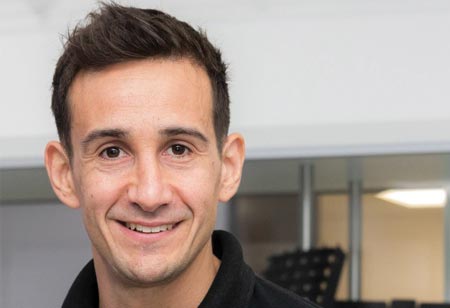

I agree We use cookies on this website to enhance your user experience. By clicking any link on this page you are giving your consent for us to set cookies. More info
Thank you for Subscribing to Electrical Business Review Weekly Brief

Mark Dickin is an additive manufacturing and molding engineering manager passionate about advanced manufacturing technology. He joined Ricoh after attaining a technical apprenticeship n 1999. He is known for his adept proficiency in the manufacturing sector and is noted for his zest to keep himself updated in the field of fast pacing technology.
In an exclusive interview with Electrical Business Review Magazine, Dickin shared his valuable insights on the challenges, trends and best practices in the Electronics Manufacturing space. Could you give me a brief overview of your experience within the advanced manufacturing space? Ricoh presents an expansive technology portfolio encompassing diverse fields, ranging from copier manufacturing to business development, inkjet and 3D printing, moulding technologies, and software solutions. We have been at the forefront of utilizing innovative tools and technology, exhibiting expertise in the moulding field. Ricoh forayed into the additive manufacturing market by introducing a sizable format printer, the SMS printer for polymers. This has garnered notable success and market acceptance, particularly in Europe. I have been active in additive manufacturing since 2018. Ricoh has undergone a transformative evolution, shifting its focus from hardware sales assistance to fully customizable production solutions centred on 3D printing in the European market. I have shifted from hardware sales to customizable 3D printing services in Europe. My focus on additive manufacturing market intelligence involves developing a metal binder jetting system and supporting diverse printing projects. What are some of the most significant challenges you face in your everyday operations? One of the major challenges is educating customers. Creating consumer awareness about the benefits of additive manufacturing is crucial for both businesses and engineers. Many individuals remain unaware of the technology’s full potential, resulting in a tendency to compare prices with conventional pricing methods. The second major challenge lies in the scarcity of skilled professionals within the domain. To tackle this issue, businesses should prioritize customer engagement and proactively address engineering scalability deficiencies. What, according to you, are some of the most exciting advancements or breakthroughs in this field? What are some of the upcoming advancements that you look forward to? Additive manufacturing has unprecedented potential and will have a revolutionary influence on current industrial practices. Metal bioenergy, in particular, focuses on components made of aluminium. This technology has advanced quickly in the last few years, and the retail application of this technology is highly anticipated. Additionally, we are working on a project using carbon fiber-reinforced polymers, which is groundbreaking in its innovations that provide augmented capabilities and intricacies. We are also undertaking a project to launch a dental printer for crowns and dentures that will redefine the market.The future of rising talents holds remarkable opportunities, and the world is their oyster